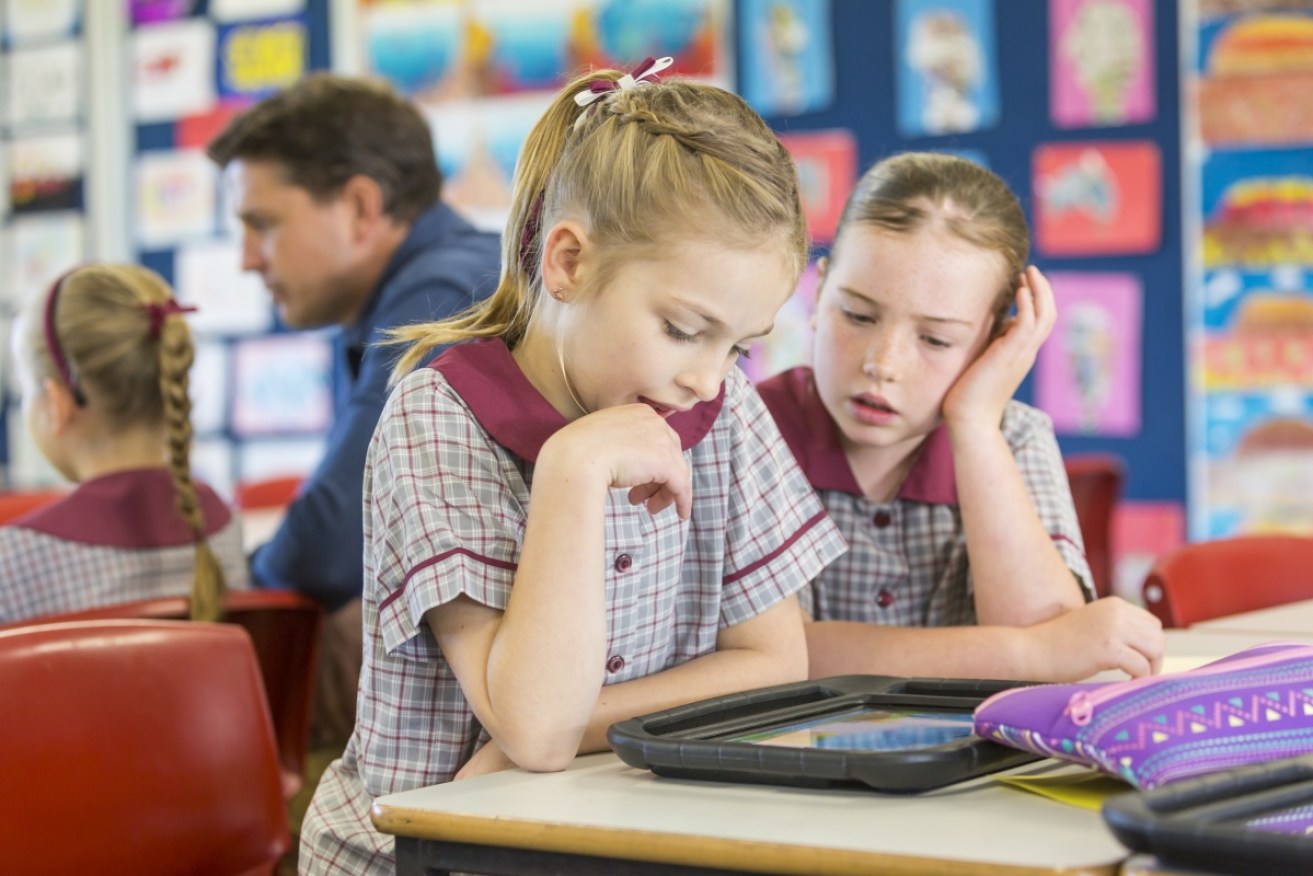Switched–off students are as bad as rowdy ones

Save the Children is calling for $10 million for a program to help young, at-risk students following a Productivity Commission report on mental health. Photo: Getty
More students in Australian classrooms are fiddling with their phones, making snide comments or turning up late than swearing at teachers or threatening their classmates – and they’re just as hard for teachers to deal with.
A new report from the Grattan Institute says it’s a major hidden issue that many students are compliant in class but passively disengaged from school work.
Some two in five children are unproductive in the classroom, whether silently disengaged, making minor disruptions like talking out of turn or being rowdy, or being aggressive towards their teacher and classmates.
“Australian classrooms are not out of control, but student disengagement is a hidden problem in schools,” report co-author and Grattan Institute school education program director Pete Goss said.
Listen to a pod–cast of Dr Goss discussing the report here.
“When a student switches off, there is the risk of a downward spiral. If the teacher responds badly, more students can become distracted and the momentum of the class can be lost.”
The report found students who were quietly disengaged did just as poorly as those who misbehaved – typically falling up to two years behind their peers – and all disruptive behaviour reduced how much other students learned.
A third of teachers say they’re highly stressed by the challenges of keeping students engaged in learning and most new teachers said their training didn’t prepare them adequately to deal with behavioural issues.
Students avoiding school work, disrupting the lesson and being disengaged were nominated as the most difficult issues to manage.
The poor behaviour and disengagement happened more often in disadvantaged schools.
Dr Goss and co-author Julie Sonnemann say what and how a subject is taught are crucial in engaging students but it’s also vital for teachers to create a good learning environment in the classroom, and to do so early in the school year.
They call for an integrated assault on the problem, including more support for schools in poorer areas, for universities to give teacher trainees more supervised time in real classrooms, and for teachers to be given better information about what behaviour management strategies are proven to work and how to use those techniques.
“The teacher’s ambition should not necessarily be a quiet classroom, but a genuinely productive class,” they say.








